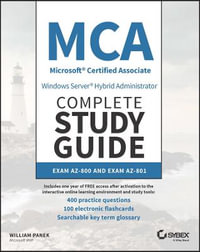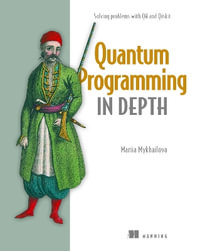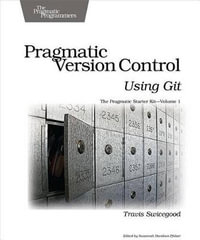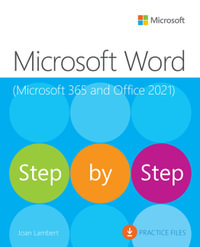
Kubernetes Management Design Patterns
With Docker, CoreOS Linux, and Other Platforms
By: Deepak Vohra
Paperback | 29 January 2017
At a Glance
424 Pages
25.4 x 17.81 x 2.18
Paperback
$74.99
or 4 interest-free payments of $18.75 with
orShips in 5 to 7 business days
CoreOS Linux is used in the majority of the chapters and other platforms discussed are CentOS with OpenShift, Debian 8 (jessie) on AWS, and Debian 7 for Google Container Engine.
CoreOS is the main focus becayse Docker is pre-installed on CoreOS out-of-the-box. CoreOS:
- Supports most cloud providers (including Amazon AWS EC2 and Google Cloud Platform) and virtualization platforms (such as VMWare and VirtualBox)
- Provides Cloud-Config for declaratively configuring for OS items such as network configuration (flannel), storage (etcd), and user accounts
- Provides a production-level infrastructure for containerized applications including automation, security, and scalability
- Leads the drive for container industry standards and founded appc
- Provides the most advanced container registry, Quay
What You'll Learn
- Use Kubernetes with Docker
- Create a Kubernetes cluster on CoreOS on AWS
- Apply cluster management design patterns
- Use multiple cloud provider zones
- Work with Kubernetes and tools like Ansible
- Discover the Kubernetes-based PaaS platform OpenShift
- Create a high availability website
- Build a high availability Kubernetes master cluster
- Use volumes, configmaps, services, autoscaling, and rolling updates
- Manage compute resources
- Configure logging and scheduling
Who This Book Is For
Linux admins, CoreOS admins, application developers, and container as a service (CAAS) developers. Some pre-requisite knowledge of Linux and Docker is required. Introductory knowledge of Kubernetes is required such as creating a cluster, creating a Pod, creating a service, and creating and scaling a replication controller. For introductory Docker and Kubernetes information, refer to Pro Docker (Apress) and Kubernetes Microservices with Docker (Apress). Some pre-requisite knowledge about using Amazon Web Services (AWS) EC2, CloudFormation, and VPC is also required.
Industry Reviews
ISBN: 9781484225974
ISBN-10: 148422597X
Published: 29th January 2017
Format: Paperback
Language: English
Number of Pages: 424
Audience: General Adult
Publisher: Springer Nature B.V.
Country of Publication: US
Dimensions (cm): 25.4 x 17.81 x 2.18
Weight (kg): 0.73
Shipping
| Standard Shipping | Express Shipping | |
|---|---|---|
| Metro postcodes: | $9.99 | $14.95 |
| Regional postcodes: | $9.99 | $14.95 |
| Rural postcodes: | $9.99 | $14.95 |
Orders over $79.00 qualify for free shipping.
How to return your order
At Booktopia, we offer hassle-free returns in accordance with our returns policy. If you wish to return an item, please get in touch with Booktopia Customer Care.
Additional postage charges may be applicable.
Defective items
If there is a problem with any of the items received for your order then the Booktopia Customer Care team is ready to assist you.
For more info please visit our Help Centre.
You Can Find This Book In

MCA Windows Server Hybrid Administrator Complete Study Guide with 400 Practice Test Questions
Exam AZ-800 and Exam AZ-801
Paperback
RRP $149.95
$113.99
OFF
This product is categorised by
- Non-FictionComputing & I.T.Computer Networking & CommunicationsClient-Server Networking
- Non-FictionComputing & I.T.Computer Programming & Software DevelopmentObject-Oriented Programming or OOP
- Non-FictionComputing & I.T.Computer HardwareServers
- Non-FictionComputing & I.T.Operating SystemsMicrosoft (Windows) Operating Systems
- Non-FictionComputing & I.T.Operating SystemsLinux























